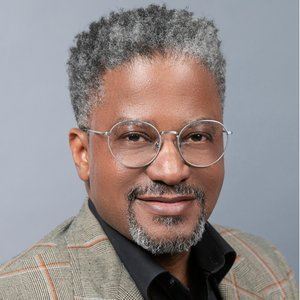 TWD and KL2 Director: Jason G. Umans, MD, PhD
TWD and KL2 Director: Jason G. Umans, MD, PhD
Dr. Umans is Associate Professor at Georgetown University Department of Medicine, Program Director, TWD and KL2 compoents of GHUCCTS, and Scientific Director, Biomarker, Biochemistry and Biorepository Core at MHRI. He is a pharmacologist and physician, with particular clinical interests in medical disorders during pregnancy and cardiovascular, metabolic, and renal disease in American Indian and Alaska Native populations. Dr. Umans led a multi-institutional NCRR-supported K30 program (which included Children’s National Medical Center and George Washington University as well as our GHUCCTS institutions), including development of courses, curricula, and evaluation metrics. He was PI of a T32 program in nephrology and hypertension and co-led a T32 in clinical pharmacology. He currently directs the GHUCCTS Translational Workforce Development (TWD) and KL2 programs, including our MS and graduate certificate programs and has overseen an expansion of our curriculum to include degree tracks on regulatory science and on health disparities and community engaged research. Dr. Umans also co-directs the education and training component of the NIMHD-supported Center of Excellence on Health Disparities in the Nation’s Capital and the new doctoral program track in Translational Biomedical Science at Georgetown.
 TL1 Program Co-Director: Dexter Lee, PhD, FAHA
TL1 Program Co-Director: Dexter Lee, PhD, FAHA
Dr. Lee is Associate Professor and Director of Graduate Studies in Physiology and Biophysics at HU; since 2013 he has been co-director of the GHUCCTS KL2 component. With Dr. Umans, he brought the “Entering Mentoring” curriculum and program to the GHUCCTS, where it has been implemented for our KL2 scholars and others. His own T0-T1 research focuses on hemodynamic assessment in mouse models of chronic hypertension to identify inflammatory mechanisms of renal blood pressure regulation. His laboratory is currently focused on roles of PPARα and inflammatory cytokines in angiotensin II–induced hypertension. Dr. Lee serves key leadership roles mentoring junior faculty through the HU Research Centers in Minority Institutions (RCMI) and Office of Faculty Development; as well, he has led minority career development activities. Dr. Lee will contribute important leadership to our core commitment to the diversity of our career development program, bringing insights from his service as chair of the APS Porter Physiology Development Committee, supporting the development of minority students in physiology and as a member of the Advisory Boards for the APS Science Education Partnership Award project and for the APS National Science Foundation’s Integrative Organismal Systems Broadening Participation program. As well, he will ensure access to training resources through the RCMI network, facilitate cross institutional opportunities and advocate for translational and collaborative research opportunities for T0-T1 junior faculty investigators.

TWD Co-Director: Shaunagh Browning, DNP, RN, CRN-BC
Dr. Browning serves as the Senior Director for the Office of Human Subject Protections at Georgetown University. She is responsible for the ethical and regulatory oversight of the organization’s program for protecting human subjects in research. As such, she oversees the planning, direction, and execution of all activities related to the Institutional Review Boards (IRBs) and the quality assurance and quality improvement initiatives necessary to improve compliance with regulatory requirements. Shaunagh’s work in clinical research at Georgetown began as a study coordinator in 1990. Since then, she has coordinated numerous clinical research, provided clinical care to research participants as a nurse practitioner, managed the federally funded clinical research unit at Georgetown University, and assisted many investigators in the implementation of their clinical research projects. Additionally, Shaunagh is a founding member of The International Association of Clinical Research Nurses (IACRN) and a key author of the “Scope and Standards of Practice for Clinical Research Nurses.” She teaches internationally on the conduct and administration of clinical research. Shaunagh received her Bachelor of Science in Nursing from George Mason University and her Master of Science, with a focus as a Nurse Practitioner, and her Doctorate in Nursing Practice from Georgetown University. Shaunagh’s work has centered on the role of the clinical research coordinator, with emphasis on the clinical research nurse and education of staff and scientists with the goal of research quality and efficiency.
Additional Staff
Cyndi Y. Campbell, MBA
Executive Director, Translational Science Education
4000 Reservoir Road NW | Building D Suite 238 | Washington, DC 20057
Cyndi.Campbell@georgetown.edu | +1 202-687-1364
Jiao Liu, MPP
Program Manager
4000 Reservoir Road NW | Building D, Suite 236 | Washington, DC 20057
jl2803@georgetown.edu | +1 202-687-4889